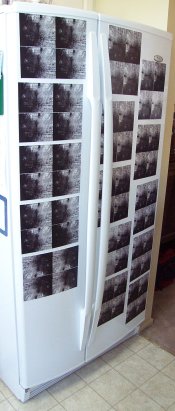For those that print in the darkroom and digitally, which process you think requires more skill and craftsmanship?
They're just different.
With film and paper you're doing physical things. You need to mix chemicals; you need some tools to measure volume, sometimes weight, temperature, and time. You need to know how to protect yourself, when needed, and how long the chemicals are good for. You sometimes need to know how to align your enlarger, how to keep film clean, how to control exposure times, and what lens apertures are preferred. Then there's the mechanical motions of processing, etc. On and on.
With digital printing you need to know how to set up and load your printer, how to install print drivers on your computer, as well as ICC profiles. And how to operate image-processing software. If you do pro-style work you likely will be using a hardware/software package to "profile" your monitor. After that it's mostly about clicking software buttons and sliders while the softer performs complicated actions on an image file.
In both cases it's possible to "split" the expertise into a couple of categories. In the days of pro-labs printing optically, for example, you could have a top-rated custom printer who has virtually no knowledge of how to mix or handle the chemicals. Those parts could be farmed out to a technician who uses similarly specialized skills to make sure that a chemical-mechanical processing system produces "proper" and consistent results, as well as being environmentally "correct" and properly treated for a long lifespan.
With digital printing it's likewise possible to have a skilled printer - one who manipulates image files - who has almost no knowledge of computer hardware. An IT specialist can handle the hardware setup, including network setup and maintenance, etc.
To reiterate, they're different. I think it's fairly rare for a person to be highly skilled in all aspects. It's relatively easy to be somewhat competent in most of these aspects, but just the time and effort needed tends to limit how deep one dives into these.




